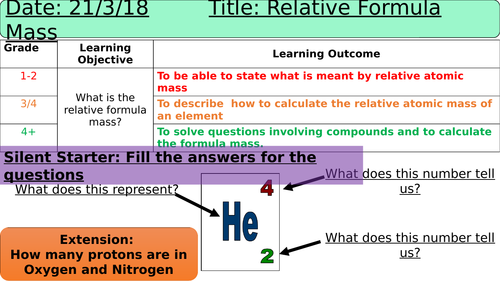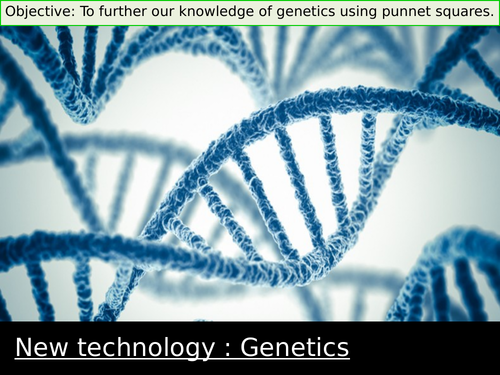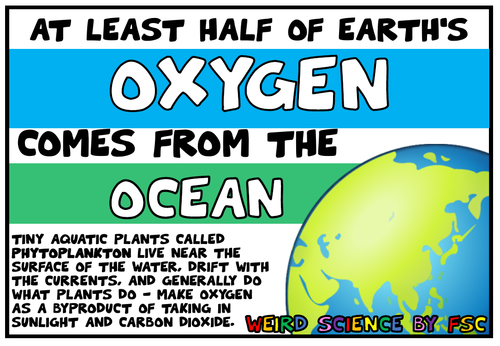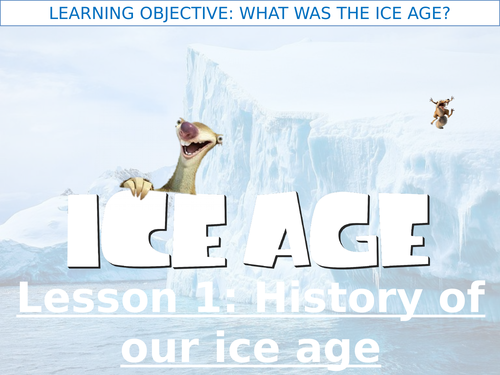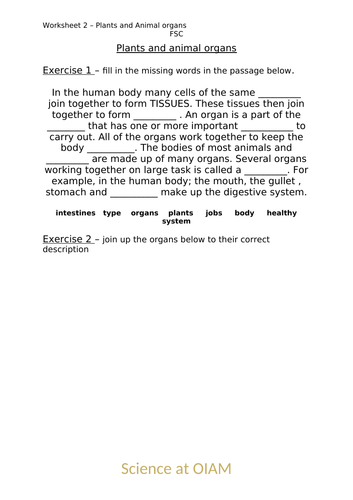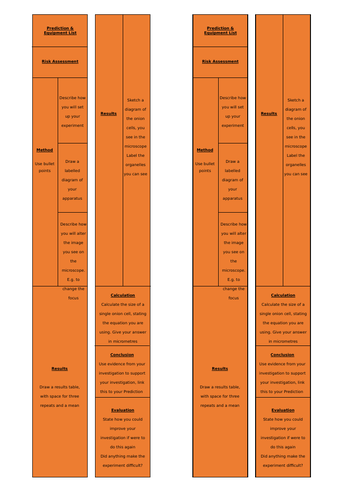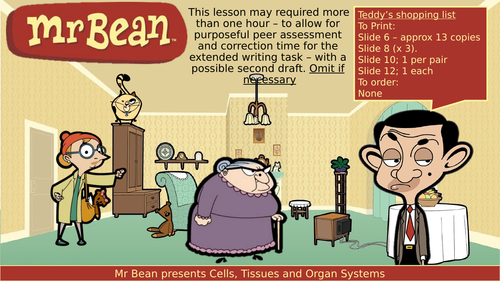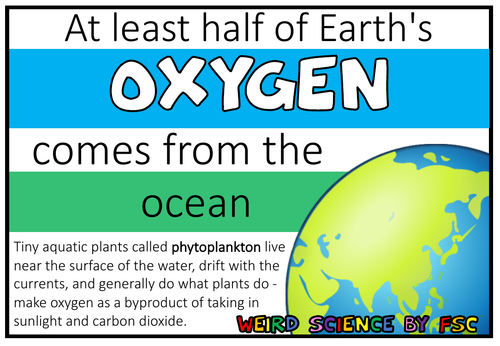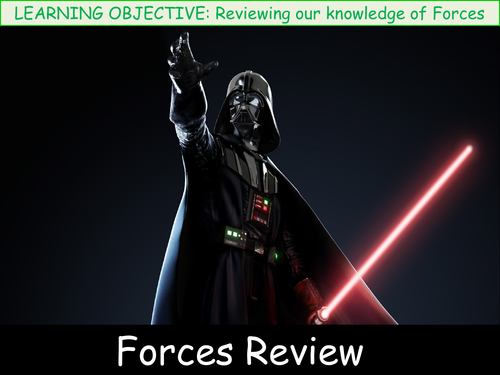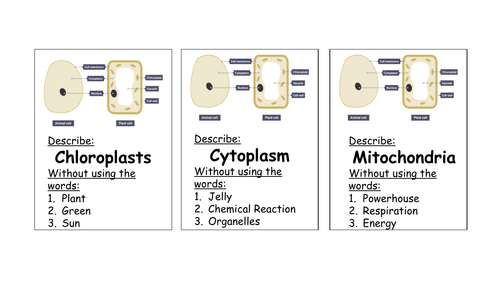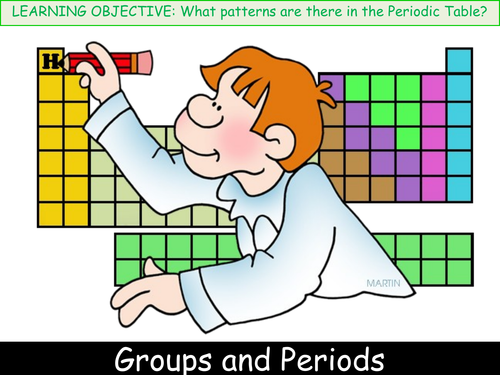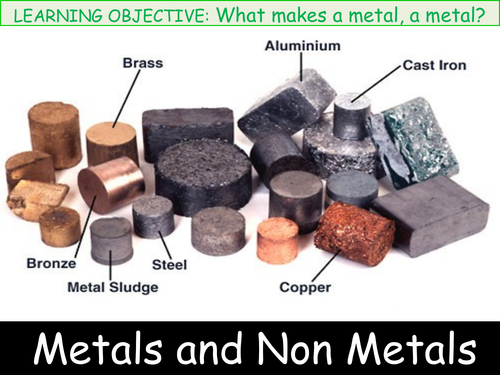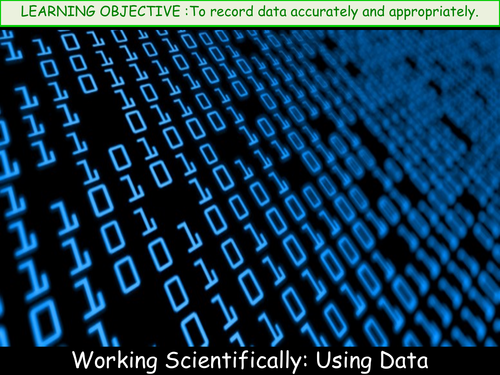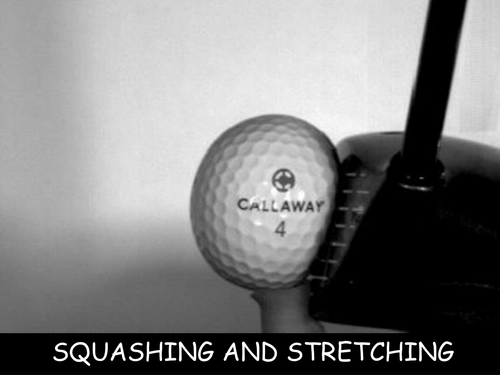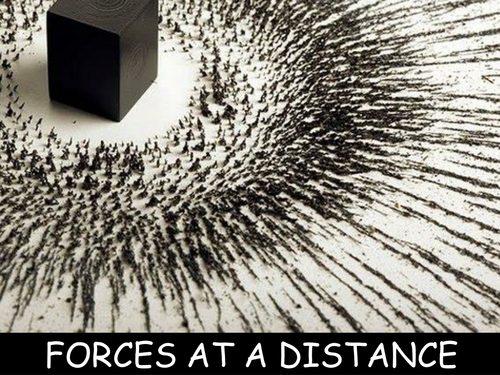
45Uploads
36k+Views
17k+Downloads
All resources

Relative Atomic + Formula Mass
A lesson on the GCSE Quantitative Chemistry directed at a low ability Yr 10 Science class. There are some further activities to stretch learners.
The presentation includes support and extension tasks on all relevant slides. collaborative learning opportunities.
A rally coach worksheet included + a homework

Genetics : Alleles and Punnet Square
This lesson was made in line with Activate 3 but is suitable for GSCE/ recap on punnet squares.
All resources and printables are included in the ppt.

Year 5: Human life cycle
A resource for KS2, Year 5, to explore the stages of the human life cycle. Fully differentiated with Achieve, Build and Challenge tasks as well as plenty of formative assessment opportunites surrounding the keywords.

Weird Fact Science Posters Pack 1 - 15 POSTERS INCLUDED
Inspire your students with weird and wacky science facts. These can be used as a simple display or a starting discussion point if you wish. these are suitable for all ages but geared towards 11-16.
The document is formatted to print at A4.
All feedback is greatly appreciated.
INCLUDES 15 Posters
More Poster packs are currently being designed.
Pack 2 AVAILABLE HERE: https://www.tes.com/teaching-resource/weird-fact-science-posters-pack-2-11963854

Ice Age - What was the Ice Age?
This is the first lesson in an Ice Age theme designed for Winter Whole School Cross Curriculum
Include film clip, group activities and scientific enquiry to really engage your learners

Plant and animal organs
The aim of this resource is to provide complete revision of the topic “Plant and Animal organs” for KS3 Science; which is suited to/ aimed at lower abilities in particular.
This sheet provides pupils with the key facts of a topic and also contains one or more short exercises which have been designed to check pupils’ knowledge and understanding.
This sheet can be used in a number of ways:
to provide quality classwork and homework materials
for end of topic revision
to provide pupils with key facts of a topic they have missed

GCSE Biology Required Practicals Writing Strip
Designed to give students the ‘ideal’ structure of a scientific write up, it provides students with a format for what to include in each section, along with tips and success criteria. Each Required practical comes with an edit marking rubric which can be used as teacher feedback; however it is suitable to use as a peer marking grid
Each page has two copies which can printed and stuck in to the margin of the student’s book. The two sheets combined create a well structured and informative double page science write up.
The document is separated in sections for each GCSE Biology Combined Trilogy required practical.

Weird Fact Science Posters Pack 2 - 15 POSTERS INCLUDED
Inspire your students with weird and wacky science facts. These can be used as a simple display or a starting discussion point if you wish. these are suitable for all ages but geared towards 11-16.
The document is formatted to print at A4.
All feedback is greatly appreciated.
More Poster packs are currently being designed.
PACK 1 AVAILABLE HERE:https://www.tes.com/teaching-resource/weird-fact-science-posters-pack-1-15-posters-included-11963275

Mr Bean presents Levels of Organisation
A compilation of Levels of Organisation lesson found on TES redesigned to have a theme of Mr Bean. Enjoy!

Free Weird Fact Science Posters
Inspire your students with weird and wacky science facts.
These can be used as a simple display or a starting discussion point if you wish. these are suitable for all ages but geared towards 11-16.
The document is formatted to print at A4.
All feedback is greatly appreciated.
More Poster packs are currently being designed.
Pack 1 is AVAILABLE: https://www.tes.com/teaching-resource/weird-fact-science-posters-pack-1-11963275
Bundle

Activate 1 P1 Yr 7 Forces
This is a bundle of five lessons to cover the Forces topic of Activate 1, directed at a mixed ability Yr 7 Science class.
The presentations includes a challenge question, support and extension tasks on all relevant slides. collaborative learning opportunities.
All worksheets includes a worked example, scaffolded questions and challenging section to stretch higher ability students.
Success Criteria/ Learning outcomes included in each lesson
Please rate and comment on what you find useful so I can alter my lessons in future.
Many thanks

Force Review Activate 1 P1 Forces
This is the review lesson in the Forces topic of Activate 1, directed at a mixed ability Yr 7 Science class.
Can be used as a DIRT activity
The presentation includes a challenging question, support and extension tasks on all relevant slides. collaborative learning opportunities.
A worksheet document includes levelled questions and challenging section to stretch higher ability students.

Cell Organelle Guess who
Students describe an organelle without using certain words to other students to guess. This can be used in whole class situation, or in small groups.
These are designed to be cut out and used in a Yr7 lesson however these could be used to refresh KS4 knowledge or supporting EAL learners.

Active 1 1.5 Balanced and Unbalanced Forces
This is the fifth lesson in the Forces topic of Activate 1, directed at a mixed ability Yr 7 Science class.
The presentation includes a challenging question, support and extension tasks on all relevant slides. collaborative learning opportunities.
A worksheet document includes a worked example, scaffolded questions and challenging section to stretch higher ability students.
Success Criteria
To describe the difference between a balanced and an unbalanced force
Use a force diagram to say which way the object will move
draw a force diagram and say whether the force is balanced or unbalanced.
Stretching: To work our a resultant force on an object
Please rate and comment on what you find useful so I can alter my lessons in future.
Many thanks

C2 Chapter 1.2 Activate 2 Group and Periods
This is the second lesson in the Periodic Table topic of Activate 2, directed at a mixed ability Yr 8 Science class with EAL activity and picture clues to support.
The presentation includes a super challenge questions, support and extension tasks on all relevant slides. collaborative learning opportunities.
All worksheets, scaffolded questions and challenging sections to stretch higher ability students are included in the PPT
Success Criteria:
The state the difference between a group and a period in the table of elements
Use patterns to predict properties of elements
Compare patterns in properties in group and elements
Please rate and comment on what you find useful so I can alter my lessons in future.
Many thanks

C2 Chapter 1.1 Activate 2 Metals and Non-Metals
This is the first lesson in the Periodic Table topic of Activate 2, directed at a mixed ability Yr 8 Science class with EAL activity and picture clues to support.
The presentation includes a super challenge questions, support and extension tasks on all relevant slides. collaborative learning opportunities.
All worksheets, scaffolded questions and challenging sections to stretch higher ability students are included in the PPT
Success Criteria:
Review you knowledge of common chemical elements
Identify properties of metals and non-metals
Compare the physical appearance and material behaviour of metals and non-metals
Please rate and comment on what you find useful so I can alter my lessons in future.
Many thanks

Electrical Appliances
This is a lesson in P1 of Trilogy GCSE Chemistry, directed at a low ability Yr 10 Science class. There are some further activities to stretch learners.
The presentation includes support and extension tasks on all relevant slides. collaborative learning opportunities.
A worksheet included
Learning Outcomes:
To state the ways different appliances convert energy into useful sources
Evaluate appliances in their efficiency to perform a particular job
Calculate the percentage of energy wasted.
Please rate and comment on what you find useful so I can alter my lessons in future.
Many thanks

Working Scientifically: Using data in tables
This is the first lesson in the Working Scientifically topic of Activate 2, directed at a mixed ability Yr 8 Science class.
The presentation includes a challenge question, support and extension tasks on all relevant slides. collaborative learning opportunities.
A worksheet including an outline of a suitable table to scaffold those who will struggle with the drawing speed or EAL
Success Criteria:
To identify the most important aspects of a results table.
To understand how to organise data in a table format.
To analyse the data and suggest improvements.
Please rate and comment on what you find useful so I can alter my lessons in future.
Many thanks

P1.2 Squashing and Stretching
This is the second lesson in the Forces topic of Activate 1, directed at a mixed ability Yr 7 Science class.
The presentation includes a challenge question, support and extension tasks on all relevant slides. collaborative learning opportunities.
A worksheet on interaction pairs, where students have to decide the pairs acting on an object - includes a worked example, scaffolded questions and challenging section to stretch higher ability students.
Learning Outcomes:
Describe how forces deform an object
Explain how solid surfaces provide a support force
Apply Hooke’s Law to a practical investigation
This is available as a bundle here:
https://www.tes.com/teaching-resource/activate-1-p1-yr-7-forces-11777264
Please rate and comment on what you find useful so I can alter my lessons in future.
Many thanks

Activate 1 P1.4 Forces at a distance
This is the fourth lesson in the Forces topic of Activate 1, directed at a mixed ability Yr 7 Science class.
The presentation includes a challenge question, support and extension tasks on all relevant slides. collaborative learning opportunities.
A worksheet on interaction pairs, where students have to decide the pairs acting on an object - includes a worked example, scaffolded questions and challenging section to stretch higher ability students.
Learning Outcomes:
Describe the effects of a field
Describe the effects of gravitational forces on Earth and in space
Appropriately use an equation to calculate weights
This is available as a bundle here:
https://www.tes.com/teaching-resource/activate-1-p1-yr-7-forces-11777264
Please rate and comment on what you find useful so I can alter my lessons in future.
Many thanks

